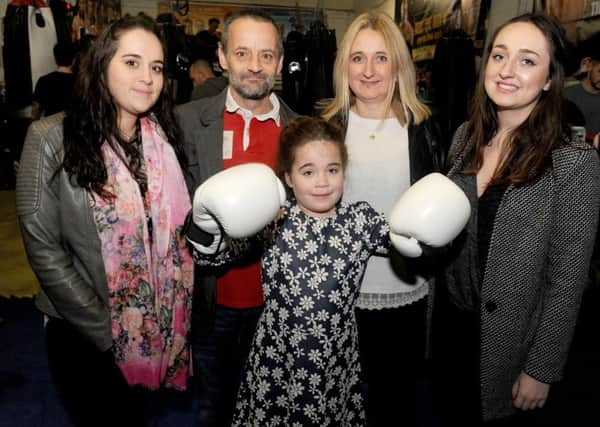MP bids to help keep NHS treatment for terminally-ill girl


Nine-year-old Maddison Crockford-Reid has such a rare condition – Sanfilippo syndrome – that there is no cure.
Her devastated family have been struggling to come to terms with the fact that the Portsmouth girl is unlikely to make it past her late teens since her shock diagnosis in August 2015.
Advertisement
Hide AdAdvertisement
Hide AdBut for the past two years, Maddi has been involved in a clinical trials in Manchester – at a specialist hospital for Sanfillipo syndrome – for a potential treatment. This had given the family a much-needed glimmer of hope.
But the NHS and the National Institute for Health and Care Excellence (Nice) has revealed from Saturday, it will no longer pay for the most costly treatments for people with rare conditions.
The family have written to Portsmouth North MP Penny Mordaunt who told The News she will help the family and see what can be done.
‘Whether a treatment is Nice approved or not, does not itself determine who should have it on the NHS,’ Ms Mordaunt said.
Advertisement
Hide AdAdvertisement
Hide Ad‘If a treatment would help a person they should clearly receive it and it is highly unethical to withdraw a treatment someone has been receiving.
‘I have secured non-Nice approved drugs for other constituents and have also got Nice guidelines changed.
‘An issue for rare conditions is that sometimes the specialist healthcare professionals have not been able to give evidence to Nice because there are so few of them. This means all the arguments for a drug being Nice approved are not taken into account. I will see what can be done to help.’